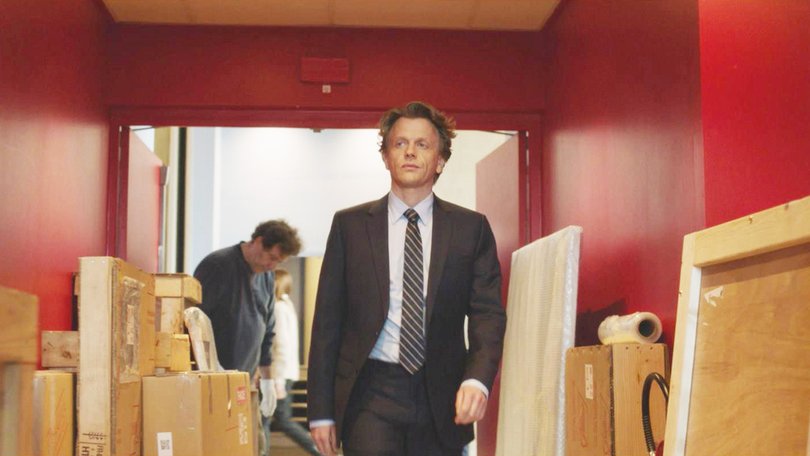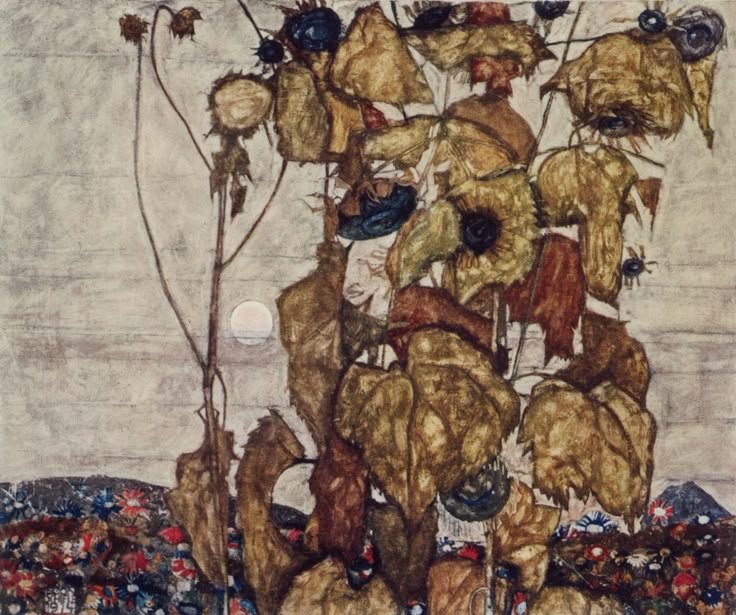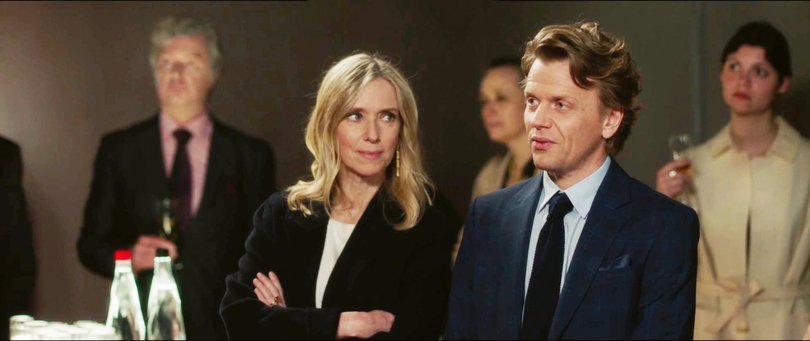The Stolen Painting: Nazi theft of Egon Schiele masterpiece inspires French film
The Stolen Painting draws its story from the real-life discovery of a lost Impressionist masterpiece in a modest home in regional France.

By 1938, Austrian Jewish textiles and antiques dealer Karl Gruwald had amassed a significant collection of Impressionist paintings.
When his country was annexed by the Nazis, fled to France and took with him 50 works. He moved to Paris but stored his collection in Strasbourg, where they were subsequently seized by the Nazis, and then sold off at auction. Gruwald survived the war but died in 1964, still searching for his lost masterpieces.
In 2005, Christie’s auction house was contacted by a private owner of a painting they wanted evaluated. The photograph they sent through suggested it could have been Austrian artist Egon Schiele’s Sonnenblumen, painted in 1914 and last exhibited in public in 1937.
Sign up to The Nightly's newsletters.
Get the first look at the digital newspaper, curated daily stories and breaking headlines delivered to your inbox.
By continuing you agree to our Terms and Privacy Policy.It was also the centrepiece of Gruwald’s stolen collection.
The Christie’s experts thought it must be a copy, but when they stood in the living room of a modest apartment in France, they knew it was the real thing. The owner, who knew nothing of its provenance as Nazi loot, recognised that it should be restored to Gruwald’s descendants.

When it was put up for auction in June 2006, it was estimated to fetch $US11 million. It went under the hammer for $US21.6 million, setting a then-record for Schiele.
Prolific French filmmaker Pascal Bonitzer didn’t know about Schiele’s Sonnenblumen and its history when he started to explore a story set in the art world.
“I interviewed over 20 people in terms of looking at people that worked as auctioneers, who worked as sellers and in the art world,” Bonitzer told The Nightly through a translator. “In this (process) I came across his story and it was of great interest and I thought it could be something, a film that had suspense.”
The film is Le Tableau Vole (released in Australia as The Stolen Painting but is also known in other markets as Auction), a drama-comedy that fictionalised the 2005 story.
It’s centred on an auctioneer (Alex Lutz) at a Parisian firm who is approached by a regional solicitor on behalf of a client, a young man and tradesperson, who moved into a house in which the painting was already hanging.
The young tradie wants to do the right thing and return the artwork to the rightful owners, despite protestations from his friends, while the art experts are shocked at the fact they have helped to uncover a genuine, lost masterpiece.

The film is light on its feet, a compelling exploration of the drama and ethics of the restitution of art stolen by Nazis.
For Bonitzer, although not the main character, the hero of the story is Martin Keller (Arcadi Radeff), the young tradie from the Alsace region, who lives a regular life far from the glamour and fierce personalities of the art world.
“It’s this clashing of worlds,” he said. “This exploration of these two worlds that are in juxtaposition to each other. That’s a really big clash of socioeconomic groups that I was very interested in putting next to each other.
“(Martin) is absolutely the key role in terms of his pure morality, and the fact that this is a very rare thing to find in people.”
Bonitzer met the real-life counterparts of the auctioneer and the solicitor, but he never met the owner who surrendered the Schiele painting almost two decades ago.
That young man, if he is still young, remains anonymous, and according to Bonitzer, continues to live in Loos in northern France, near the border of Belgium and where the Schiele was found.
The Martin character in The Stolen Painting is, for the most part, fictional with his shades plucked from Bonitzer’s imagination.
The fate of artworks stolen by the Nazis is never far from headlines. Even among Schiele’s work, there have been several high profile battles over the ownership.
Two years ago, seven Schieles were restituted to the Grunbaum family from institutions including MoMA and the Santa Barbara Museum of Art, while a further three had been seized from collections held by the Art Institute Chicago, the Carnegie Museums and Oberlin College.
Viennese art patron Daisy Hellman owned the Schiele work Krumau when it was confiscated by the Nazis in 1942. She first made a restitution claim in 1948 but it wasn’t returned by the city of Linz until 2002, by then to her heirs.
The continued impact of World War II, even in this very specific area, was also of interest to Bonitzer. “It’s the other side of the story,” he said. “It is our history, and it is important.”
The Stolen Painting is in cinemas

